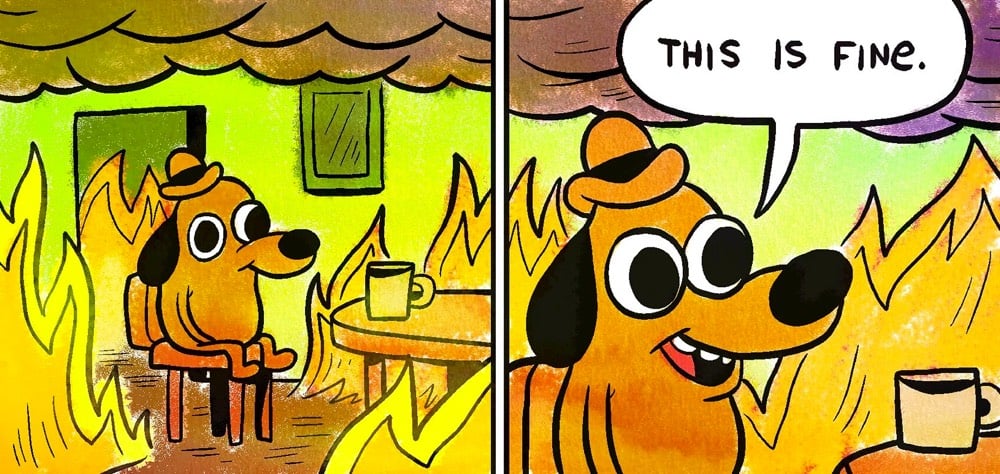The New Normal

For Vox, David Roberts writes about how “shifting baselines” affect our thinking and how easily overwhelmingly large issues like climate change or a pandemic can become normalized.
Maybe climate chaos, a rising chorus of alarm signals from around the world, will simply become our new normal. Hell, maybe income inequality, political dysfunction, and successive waves of a deadly virus will become our new normal. Maybe we’ll just get used to [waves hands] all this.
Humans often don’t remember what we’ve lost or demand that it be restored. Rather, we adjust to what we’ve got.
The concept of shifting baselines was introduced in a 1995 paper by Daniel Pauly. Roberts explains:
So what are shifting baselines? Consider a species of fish that is fished to extinction in a region over, say, 100 years. A given generation of fishers becomes conscious of the fish at a particular level of abundance. When those fishers retire, the level is lower. To the generation that enters after them, that diminished level is the new normal, the new baseline. They rarely know the baseline used by the previous generation; it holds little emotional salience relative to their personal experience.
And so it goes, each new generation shifting the baseline downward. By the end, the fishers are operating in a radically degraded ecosystem, but it does not seem that way to them, because their baselines were set at an already low level.
Over time, the fish goes extinct — an enormous, tragic loss — but no fisher experiences the full transition from abundance to desolation. No generation experiences the totality of the loss. It is doled out in portions, over time, no portion quite large enough to spur preventative action. By the time the fish go extinct, the fishers barely notice, because they no longer valued the fish anyway.
And it’s not just groups of people that do this over generations:
It turns out that, over the course of their lives, individuals do just what generations do — periodically reset and readjust to new baselines.
“There is a tremendous amount of research showing that we tend to adapt to circumstances if they are constant over time, even if they are gradually worsening,” says George Loewenstein, a professor of economics and psychology at Carnegie Mellon. He cites the London Blitz (during World War II, when bombs were falling on London for months on end) and the intifada (the Palestinian terror campaign in Israel), during which people slowly adjusted to unthinkable circumstances.
“Fear tends to diminish over time when a risk remains constant,” he says, “You can only respond for so long. After a while, it recedes to the background, seemingly no matter how bad it is.”
Ok, I’ll let you just read the rest of it, but it’s not difficult to see how shifting baselines apply to all sorts of challenges facing the world today. I mean the lines “You can only respond for so long. After a while, it recedes to the background, seemingly no matter how bad it is.” seem like they were written specifically about the pandemic.





Stay Connected